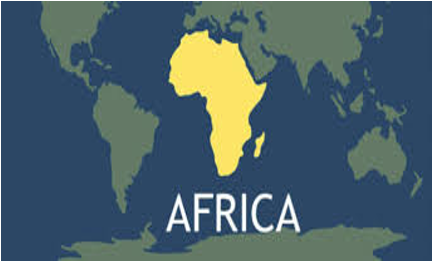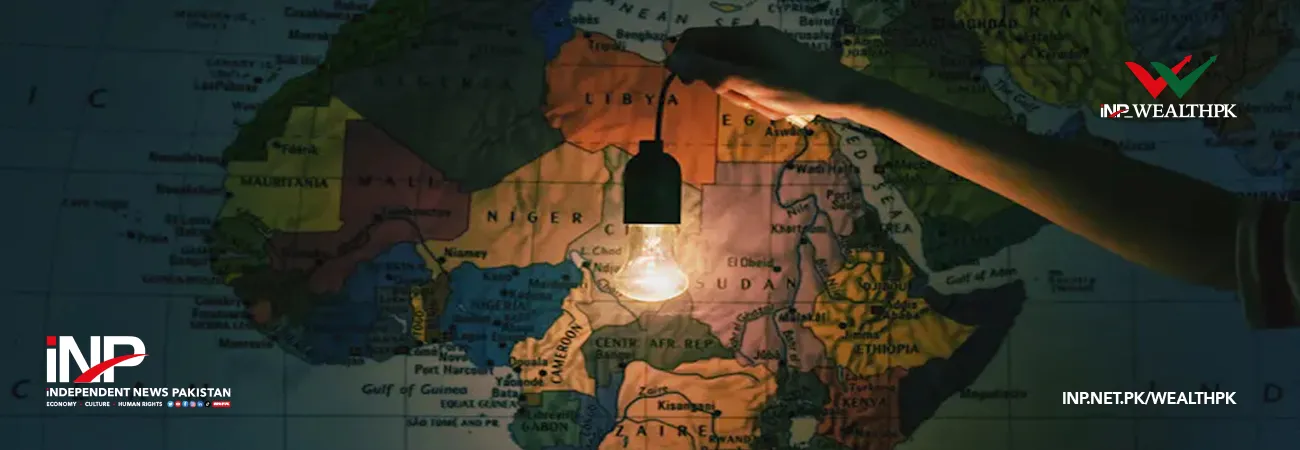INP-WealthPk
Hamza Ali
The African continent is emerging as a new policy priority for Pakistan, as the country seeks to diversify its exports beyond its traditional partners like the EU and the Gulf states, where the demand has been flattening, reports WealthPK.

Africa receives only 7.3% of Pakistan's total exports, even though the continent has 1.4 billion people and a GDP of $2.8 trillion. There is a gap in the market and a compelling potential that this imbalance reveals. If new strategic policies and economic diplomacy support an immediate shift in focus, this dynamic potential might be significantly realized, according to trade and policy analysts. Latest statistics show that Pakistan and Africa had a trade deficit of $900 million in 2024.
The difference between exports and imports was $3.2 billion. Professionals, however, argued that with sufficient funding, careful planning, and local participation, this shortfall might be turned into a surplus in a few years. Salman Raza, trade and investment attaché at the Ministry of Commerce, emphasized Africa’s immense potential in an interview with WealthPK. “Africa, often dubbed the ‘Continent of the Future’, presents a lucrative yet underutilized frontier for Pakistan’s trade diversification,” he said.
According to Raza, nations such as Nigeria, South Africa, and Egypt stand out as priority partners due to their large GDP contributions, expanding urban consumer classes, and growing demand for key Pakistani products such as tractors, surgical instruments, cereals, and rice. Raza also pointed to the evolving role of Pakistan’s Look Africa Policy, which has begun laying the groundwork for a deeper economic engagement.
Launched to enhance diplomatic and trade ties with African countries, the policy is considered an important stepping stone. However, Raza acknowledges that several structural and operational bottlenecks still hindered the full realization of trade potential. These include non-tariff barriers, inadequate freight infrastructure, high shipping costs, and insufficient processing capacity, especially in the parboiled rice sector.
“Africa is not just an alternative market; it is a growth opportunity waiting to be unlocked,” he noted. One of the promising avenues, according to Raza, is rechanneling rice exports from saturated markets like China to emerging African economies, where the demand is rising and price competition can be better managed. “We must also invest in value-added production, not just ship raw or semi-processed commodities,” he added.
It is widely recognized that these actions necessitate more than mere intentions; they demand robust diplomatic logistics, proactive bilateral agreements, and effective trade facilitation mechanisms. In this context, establishing Preferential Trade Agreements (PTAs), especially with entities such as the Southern African Customs Union (SACU), has the potential to decrease tariff-related expenses and promote enduring trade stability.
Echoing these sentiments, Namera Saleem, a research associate and trade analyst at the Pakistan Research and Analysis Centre (PRAC), highlighted the importance of leveraging policy frameworks for deeper market integration. “With strategic focus and deeper market integration under the Look Africa Policy, Pakistan has the potential to double its exports to Africa to $5–6 billion, reduce the trade imbalance, and tap into one of the world’s fastest-growing consumer markets,” she said.
Namera emphasized that the opportunity extends beyond traditional goods. New sectors like pharmaceuticals, light engineering, processed food, sports goods, cosmetics, wigs, and even education services are gaining traction in African markets. “These emerging sectors, if supported with the right mix of public-private collaboration and targeted incentives, could not only enhance export volumes but also contribute to job creation and industrial upscaling in Pakistan,” she added.
Enhancements in logistics may substantially facilitate this transformation. Industry experts indicated that direct shipping routes to major African ports might decrease freight time by as much as 40% and reduce the shipping costs by 15–20%, thereby enhancing the competitiveness of Pakistani products in price-sensitive markets. Additionally, utilizing duty drawbacks and modernizing trade documentation processes would improve the ease of doing business for exporters.
As Pakistan reassesses its global trade policy, Africa emerges as a dynamic, potential market that meets the country's needs for diversity, resilience, and long-term prosperity. To turn promise into performance, policy consistency must be ensured, institutional support strengthened, and private sector participation encouraged. With expanding consumer demand, young populations, and a growing taste for global products, Africa has the potential to become the cornerstone of Pakistan's next trade success story if the country responds quickly, cleverly, and strategically.
Credit: INP-WealthPk













